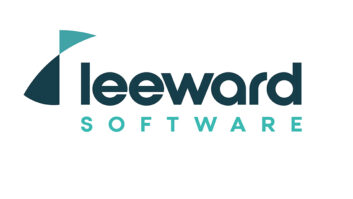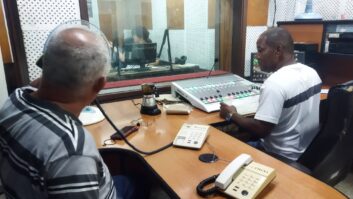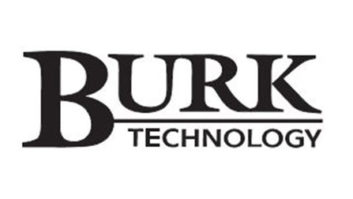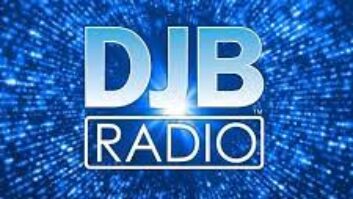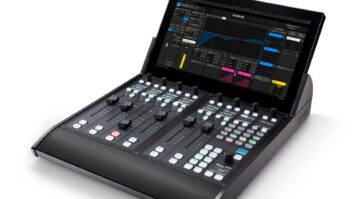Audience fragmentation, ratings methodology, competing technologies and a rough economy. All were topics of intense discussion at the NAB Radio Show last fall.
A sampling of session topics at this year’s convention indicates these are still on our collective plate. Further, the Federal Communications Commission has decided it will award FM translators to certain AM stations. Mobile apps and Internet radio are more of a presence than ever. The rollouts of the Portable People Meter and HD Radio are another year older, both with their share of controversy. Performance royalties dominate the debate in Washington, and a new administration is in office.
And of course, that economy thing is still with us.
New normal
In spite of the issues facing the industry, Joe Schwartz, president and CEO of Cherry Creek Radio, is enjoying his job as chair of the 2009 NAB Radio Show Steering Committee.
“There’s no question that we face challenges,” he said. “As an industry, we’ve had the worst year in memory, down 15 to 30 percent, and no one knows what is going to happen in the next months, let alone years.” Indeed the Radio Advertising Bureau reported in late August that U.S. commercial radio revenue from all sources was off 23 percent in the first half of 2009 compared to a year ago.

Joe Schwartz According to Schwartz, that is why this convention is important. “We’re bringing in a lot of state-of-the-art guys to the show this year to give attendees the tools they need to navigate what we at Cherry Creek are calling the ‘new normal.'”
Specifically, he said, several sessions address financing and station economics.
A session sponsored by Dickstein Shapiro is “Broadcast Financing 2009” (with the apropos subtitle “Surviving the Meltdown”), which presents financing options and strategies in the current economy.
Schwartz says there is indeed money out there, though both buyers and sellers have to be creative.
“Banks will loan,” he said, “but a buyer is going to have more luck with a local bank than with a huge national institution. When that does not work — and sometimes it doesn’t — there is always seller financing, where the seller takes back ‘paper’ from a qualified buyer.”
In short, he said, when a buyer and seller want to get a deal done, there is a way to do it.
Protect the guts
With a lighter title but on the same critical subject, “Deon’s Awesome Finance Session” is a panel moderated by Deon Levingston, vice president and general manager of WBLS(FM) in New York. The goal is to shed light on the fundamentals of the U.S. economy in ways that even those who hate to balance a checkbook can understand.
“We’ve all got to find ways to operate without taking the guts out of our stations and companies,” Schwartz said.
“There is a lot of controversy surrounding this. Some companies have stripped away so much manpower there’s not much of a company left.” At Cherry Creek Radio, he said, “We’ve been committed to examining every job, of course, but always with an eye toward maintaining the integrity of our operations. That’s really the best anyone can do in this environment.”
Cherry Creek, a Denver-based company with stations in eight states, focuses on small markets; Schwartz thinks that is a terrific place for his company to be.
“Radio is the perfect medium for small markets,” he said, adding, “the ability of radio to address the issues and programming needs of a small-market audience is unparalleled. It’s all about driving customers and selling product for our advertisers. We do that by being local, local, local.”
Those are also hot topics at the Radio Show, with sessions like “Great Client Marketing Strategies With Small Budgets” and “Small-Market Budget Beaters for 2010,” in which marketing gurus from markets of various sizes share plans for helping businesses achieve results using radio as an advertising medium.
“The Dow at 9000 does not mean much for our business in Missoula or any other market we operate in,” he said. “What really affects our business is local unemployment and local consumer confidence.”
When consumer attitude is positive, his stations, as well as his competitors’ stations, do just fine. That correlation between consumer and advertising is one that is common across radio markets, which is why it will be a major focus at the show, according to Schwartz.
Tech talk
Technological changes also face the radio industry this year. HD Radio applications and radio’s extension to portable devices are in the forefront. Satellite radio, Internet radio and personal entertainment devices all affect stations.
Schwartz noted that the show’s steering committee wanted to make sure that all were addressed, though he has not seen much impact in the markets in which Cherry Creek operates. He thinks the technology behind HD Radio, for example, is finding more interest in bigger markets than small. Likewise for satellite radio and other technologies.
“Of course,” he added, “HD and satellite receiver penetration are both driven by new car sales, and we are looking at a 9 million unit year, down from 16–17 million last year, so that will obviously have an impact.”
However, he said, broadcasters should recognize the importance of the competitive landscape as well as the technical improvements offered by HD Radio, and the show will have plenty of information on both.
“HD Radio Initiatives: Today’s New Opportunities” addresses multicasting opportunities with HD Radio and allocating resources so as to maximize return on investment, which proponents believe can be significant.
Not surprisingly, then, the chair of the Steering Committee feels that this year’s show is a “must-see.” Perhaps less expectedly, he feels that our industry, which has survived competitive threats almost from the day it first signed on, remains vibrant and compelling even today. He noted that one broadcast owner has recently invested more than $50 million in two deals to build assets in Portland, Ore.
“A number like that,” he says, “shows that there is still a lot of belief out there in traditional radio.”





